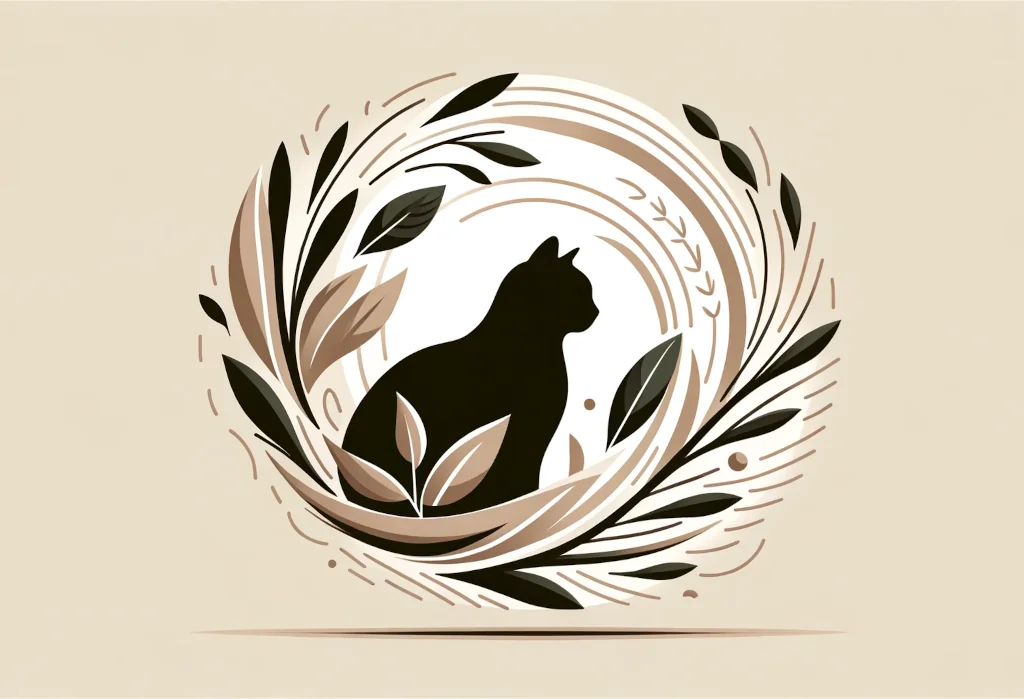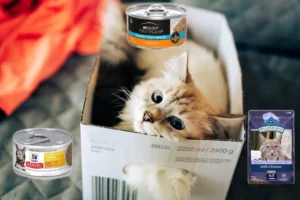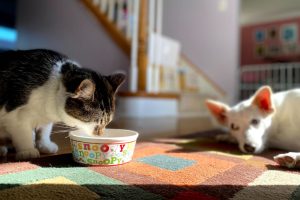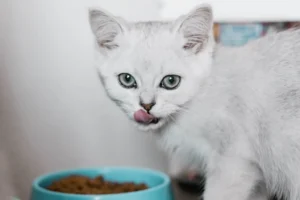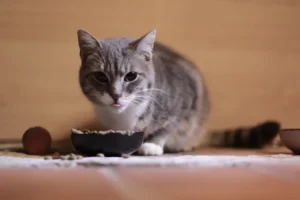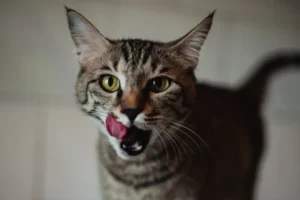Cats. Mysterious, majestic, mightily finicky eaters. As a cat parent, you know the perplexity of peeking into those imploring eyes that seem to demand something better, something healthier.
You’re on a quest for what’s best for your feline friend, and it’s brought you here. Let’s release the suspense like a cat with a caught mouse: you’re going to discover the real upsides of organic cat food and the wider paw-prints it leaves on the world.
Key takeaways:
- Organic cat food, free from synthetic chemicals and often featuring higher-quality proteins, may provide nutritional benefits tailored to cats’ rigorous dietary needs and support healthier digestion.
- A switch to organic can potentially ease allergies and sensitivities in cats, thanks to natural ingredients and fewer artificial additives.
- Choosing organic cat food supports sustainable farming practices and contributes to reduced environmental impact, aligning your pet’s diet with eco-conscious values.
Is Organic Cat Food Really Better for My Cat?
When you’re strolling through pet food aisles, you might find yourself wondering if organic options are superior for your furry companion.
Organic cat food is made with ingredients that are farmed without synthetic fertilizers, pesticides, or genetically modified organisms (GMOs). These ingredients not only meet stringent guidelines to be certified organic but also tend to reflect a commitment to environmentally sustainable practices.
Compared to conventional cat food, which may contain by-products and fillers with questionable nutritional value, organic cat food often boasts whole and unprocessed ingredients. But does that mean it’s nutritionally better? It’s not just about the label—what’s important is the quality of the protein sources and the overall balance of nutrients. Some experts argue that organic cat foods may offer purer sources of the essential nutrients that cats need to thrive.
Vets and nutritionists often emphasize that, regardless of whether it’s organic or not, the healthiest cat food is one that meets the specific nutritional needs of your cat, which vary based on age, weight, activity level, and overall health. However, for cat owners who wish to avoid chemicals and artificially produced ingredients, organic cat food can be a way to align their pet’s diet with their values.
Will My Cat Enjoy Organic Food More?
Taste is king, or in this case, queen of the pet food domain. Cats have discerning palates, and it’s no secret they can be finicky eaters. So, the million-dollar question—is organic grub going to tickle their taste buds more than the regular stuff?
The flavor profile of organic cat food often comes from high-quality sources of meat, fish, or poultry—the primary ingredients in many organic recipes—which can indeed be more palatable for some cats. But hold on, don’t just take my word for it; tons of cat parents who’ve made the switch note their cats seem more eager at mealtime, with some even showing improved coat sheen and energy levels, which can be indirect indicators of enjoying and thriving on their new diet.
Switching to organic doesn’t automatically guarantee your kitty will be doing backflips for their meals. After all, taste is subjective—even for cats. But quality ingredients that are closer to what cats naturally consume might just hit the spot.
What’s the Impact of Organic Cat Food on My Cat’s Digestive Health?
Cat owners know all too well that digestive issues can be quite common among our feline friends. If you’ve cleaned up your fair share of hairballs or dealt with the odd bout of upset kitty tummy, you might be considering whether organic cat food could make life easier on your cat’s digestive system.
Without artificial additives and preservatives, organic cat food has a reputation for being gentler on the gut. The ingredients in organic cat food are often more straightforward and less processed, which can result in easier digestion. Higher-quality, more digestible ingredients could help reduce the incidence of gastrointestinal issues like diarrhea, constipation, or vomiting.
Anecdotal evidence from cat owners often supports the claim that organic food can lead to better digestive health, but scientific studies are still catching up. It’s speculated that the absence of chemical residues and use of higher quality protein sources in organic cat food may contribute to these benefits. The American Journal of Veterinary Research, for instance, has published studies highlighting the positive impact of diet on feline health, though more research specific to organic food is needed.
For cats with sensitive stomachs, organic food might just provide the right dietary balance to keep their digestive tract purring. But as with all things pet-related, it’s always a smart move to consult with your vet before any major diet overhaul. They can provide personalized advice that takes into account your cat’s unique health profile.
Remember, every cat is different, and what works wonders for one might not for another. It’s about finding what suits your furball best and watching them thrive.
How Does Organic Cat Food Affect Allergies and Sensitivities?
When it comes to our feline friends, we’re often tuned in to their every purr and pounce. So, when something’s up – say, a new itch or tummy trouble – we’re on high alert, aren’t we? If your kitty is contending with allergies or sensitivities, you’ve probably scoured the earth (or at least the internet) for something that won’t make them go haywire. This is where organic cat food can come in as a knight in shining armor.
The scoop on organic cat food is that it’s typically crafted without artificial additives, hormones, or genetically modified organisms (GMOs). For our sensitive whiskered pals, this can be a game-changer. Here’s why:
- Natural Ingredients: Many organic cat foods are made with limited ingredients, and they’re often the high-quality, recognisable ones (think real chicken, not just “chicken meal”). This can make it easier for you to pinpoint what’s a friend or foe to your cat’s digestive system.
- No Nasty Extras: Without artificial flavors, colors, or preservatives, organic cat food cuts out a lot of potential allergens. It’s like having a clean plate – fewer ingredients mean fewer chances for allergies to set the stage.
- Grain-Free Options: Many organic foods come in grain-free recipes, which can be a huge plus for cats with grain allergies or intolerances.
Now, let’s not beat around the bush – organic doesn’t automatically mean allergen-free. Cats can be allergic to natural ingredients too. But it does mean that you’re reducing the overall allergy roulette wheel. And for cats that get all sniffly or scratchy from certain grub, that’s a pretty big deal.
Here’s a unique tip: While you’re contemplating the switch to organic, consider incorporating a novel protein source that your cat hasn’t been exposed to before. Things like organic duck or rabbit can be the wildcard that helps keep allergic reactions at bay.
What Are the Environmental Benefits of Choosing Organic Cat Food?
We’re all trying to leave a lighter pawprint on the planet, right? Well, picking organic cat food doesn’t just score you points with your kitty, but Mother Nature is doing the happy dance, too.
- Sustainable Farming Practices: Organic farming takes a hands-on approach to the environment. It focuses on soil health and biodiversity, which is like making sure the dance floor is solid before throwing a party.
- Reduced Chemical Runoff: Conventional farming can be like a wild partygoer spilling drinks everywhere – in this case, chemicals that can end up in waterways. Organic farming is the considerate guest, significantly cutting down on the potential for chemical spillage.
- Happy Bees and Critters: Organic farms are like VIP wildlife clubs; they’ve got policies that help protect our buzzy bee friends and other critters. It’s a win-win for the ecosystem.
But here’s the kicker – while these benefits are pristine on paper, it’s important to have some real talk about what “organic” really means. Certification and regulations can vary, so it’s crucial to do your homework when picking an organic brand. You want to make sure their organic talk walks the organic walk, you know?
One example of putting your money where your kitty’s mouth is, would be choosing brands that are transparent about their sourcing and have reputable organic certifications. The USDA’s National Organic Program is a good place to start. Ensuring you’re supporting those who are genuinely invested in sustainable farming will echo far beyond your cat’s food dish.
So there you have it – serving up organic cat food can be close to waving a magic wand for allergy-prone kitties, and it’s a nod to keeping our planet purring along nicely. Just remember, our cats are royalty, but they can be as finicky as an old door hinge, so ease them into any diet changes. Here’s to happier cats and a happier planet! 🌍🐱
Alex, a passionate animal lover, has experience in training and understanding animal behavior. As a proud pet parent to two dogs and three cats, he founded AnimalReport.net to share insights from animal experts and expand his knowledge of the animal kingdom.

